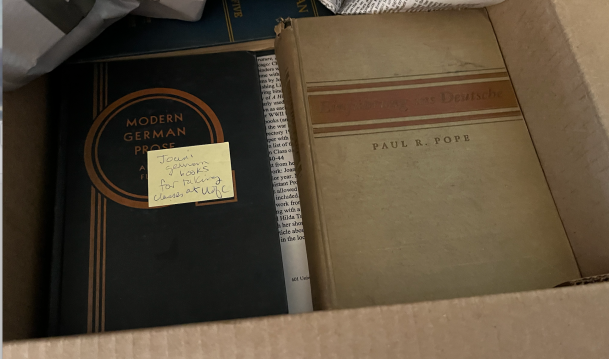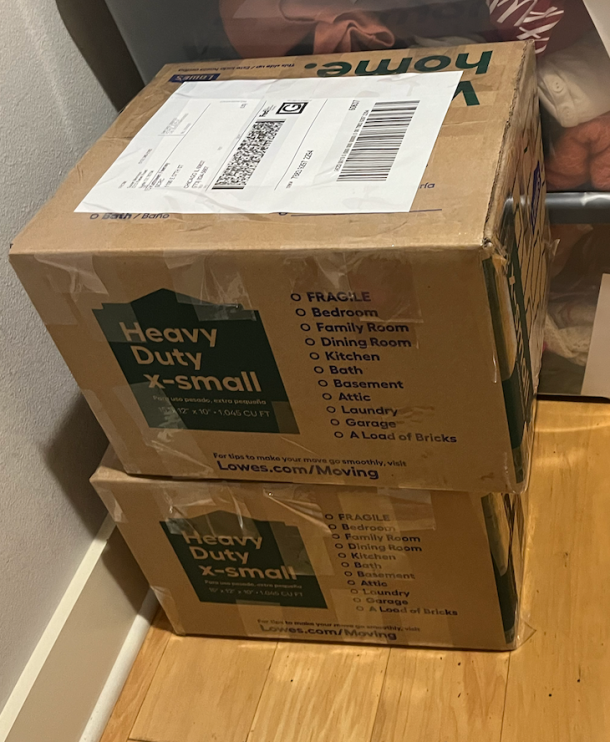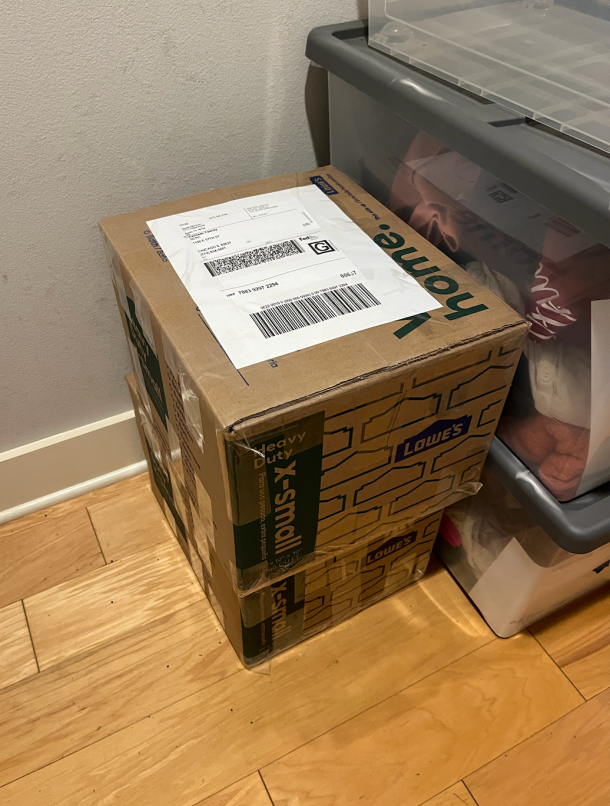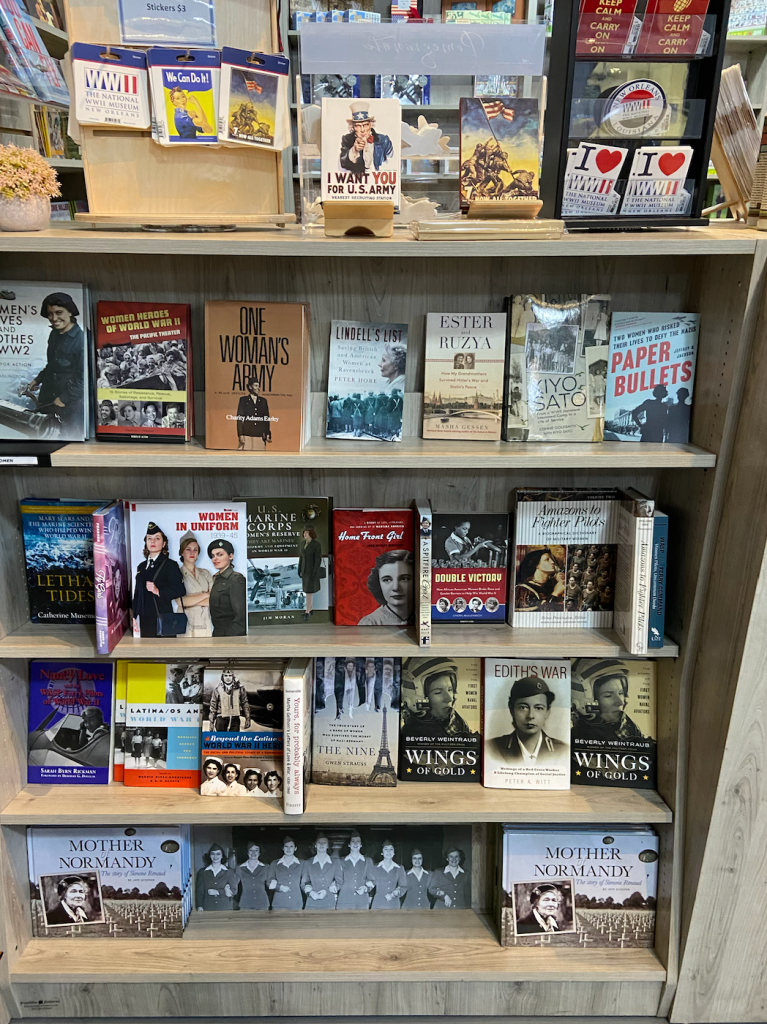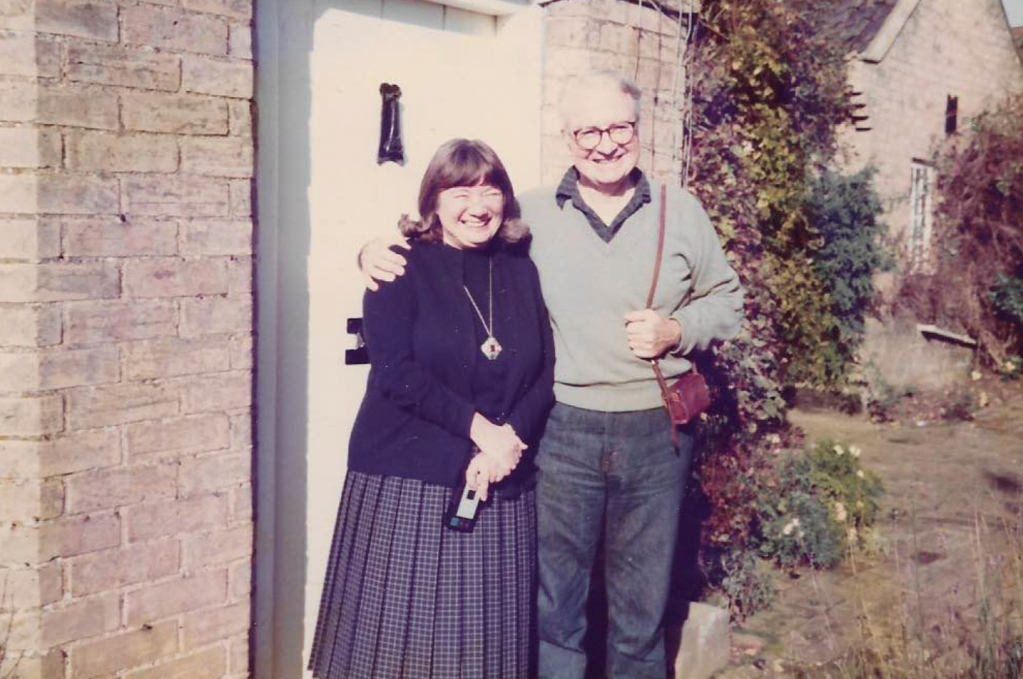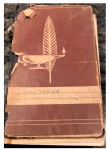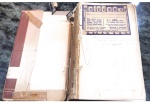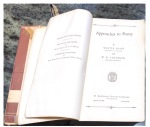In 2010, my mother, Joan Wehlen Morrison, died, leaving behind her grieving family. Additionally, she left behind her journals, poetry, and diaries from the late 1930s-early 1940s from when she was ages 14-20. As an oral historian, writer, and professor, she would have appreciated the editing of these materials into Home Front Girl and Another Troy, which have been edited by me and published by Chicago Review Press and Finishing Line Press.
Time marches on. These materials, the original papers and notebooks, have been at my home in Austin, TX, for over a decade. But my husband and I plan to retire in the near future to a home on the seaside in Massachusetts. 
It’s a charming Victorian house which has long been in his family. But as it sits twenty feet from a salty shore and has been known to house more than one silverfish, it would not be the ideal place for such vulnerable materials. I’ve long wanted to have mom’s collection archived at a professional library.
My dream was to have them housed at the University of Chicago which she graduated from in 1944. She talks about the university many times in her journals.
I reached out to Kathleen Feeney, Head of Archives Processing and Digital Access, at the Hanna Holborn Gray Special Collections Research Center. I originally wrote in March 2023. Ms. Feeney was interested but as they had a staffing shortage could not take new donations at that time. So she suggested writing again in the fall. I did so and this time they could take mom’s papers! I am thrilled!
While I was fully prepared to drive them up there and hand them over in person, Ms. Feeney patiently walked me through how they could be sent via FedEx at their expense. On January 4, 2024, the boxes arrived at their destination in Chicago. I breathed a sigh of relief.
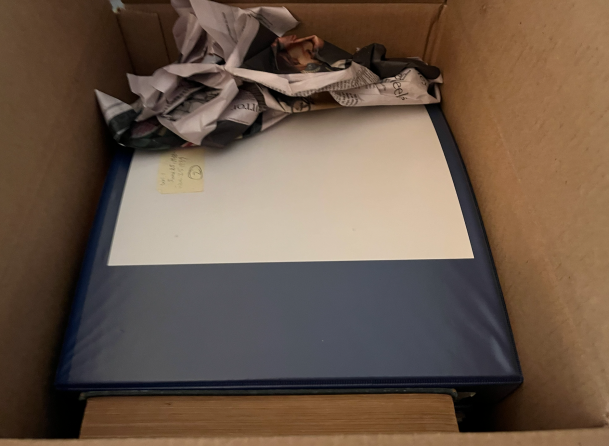
One of the three ring binders containing her journals. I placed the original journals in these new binders to protect them. Each page is in a separate sleeve as the paper crumbles due to age.
My original cover letter: why the materials would be of interest to researchers
As I explained in my original cover letter, my mom’s “materials would be of great interest and importance to your institution and city….What I am calling the Joan Wehlen Morrison Collection provides primary historical documentation of a teenager’s and later a young woman’s account and reaction to war as it is coming and then arrives, University of Chicago Lab School (“U-High”) and University of Chicago history and events, as well as the city of Chicago itself. Among other specialties, Joan’s diaries, journals, and notes would add to some key areas of interest in the Manuscript Collections, including “the history of the Hyde Park-Kenwood neighborhood,” “history of the University of Chicago,” “UChicago student life,” and “poetry.” It would contribute to interests in the history of children, teenagers, and young women; World War II; Chicago history; and education from the mid-1930s to 1944 in Chicago.
In addition to Joan’s original diaries (only a portion of which appear in the published volumes edited by her daughter–me), the collection includes journals with school essays, poetry, and reading lists (of interest to juvenile education and reading researchers), as well as a few annotated textbooks from the time period. Joan’s writings tell a unique – and true — story as she loses her innocence due to the impending war and its violent arrival. She often mentions events of the day in her journals and reflects on them. Along the way she goes on dates, reflects on politics and art, and ends up falling in love with the man who would become her husband. Joan offers us more than mere historical color as she muses on poetry, literature, education, nature, God, the meaning of life, romance, boyfriends, history, and World War II. Joan’s doodles and sketches are also present in the papers.“
Additionally, I included mom’s biography and information on where her historical work is housed at two other archives.
Biography of Joan Wehlen Morrison: She was born in Chicago in December of 1922. After attending the University of Chicago Lab School and then the University of Chicago, she lived in New York City and Morristown, New Jersey. She was the co-author of American Mosaic: The Immigrant Experience in the Words of Those Who Lived It (1980), recognized as a New York Times Notable Book of the Year. Dramatic readings from the book have been performed on Ellis Island, at the Mark Taper Forum in Los Angeles, and in an In Performance at the White Houseprogram broadcast nationally on PBS. The archives for that book are housed at the Bob Hope Memorial Library at the Ellis Island National Museum of Immigration [National Park Service, U.S. Department of the Interior] as the American Mosaic Collection 1972-1980 (bulk dates: 1975-1978) [Catalog Number: STLI 45574].
Her second book, From Camelot to Kent State: The Sixties Experience in the Words of Those Who Lived It (1987), became the basis for her popular course on the 1960’s at the New School for Social Research in New York City. The archives for that book, the Joan and Robert K. Morrison Collection, are housed at the Smithsonian [https://sova.si.edu/record/NMAH.AC.0359].
What the Joan Wehlen Morrison Collection contains
As I explained in my original letter, “Most recently Joan is the (posthumous) author of Home Front Girl: A Diary of Love, Literature, and Growing Up in Wartime America, edited by her daughter, Susan Signe Morrison (Chicago Review Press, 2012/2018). It draws on Joan’s diaries and journals, focusing on the pre-war period and into 1942. These diaries and journals comprise the bulk of my proposed donation to your archive. Home Front Girl was named by the Children’s Book Committee of the Bank Street College of Education to the Best Children’s Book of the Year 2013 list (Memoir: Ages 14 & up). It won two additional awards:
- Gold Medal in Historical Young Adult (Literary Classics)
- Words on Wings Book Award (only four books get a Top Honors, which this is).
Some of Joan’s poetry from this archive I wish to donate has been published in the chapbook, Another Troy (Finishing Line Press, 2020) which won the Gold Medal for the 2021 Human Relations Indie Book Awards in the category of Wisdom Poetry.”
Once the materials are available and digitized, I’ll let you all know. It may take a while. I hope you can read the original materials one day! Thanks to Ms. Feeney for facilitating this collection being archived!
